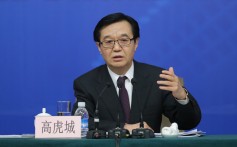
China, Europe reach deal to end Beijing's anti-dumping probe of European wine
Beijing opened the inquiry last year into whether Europe was selling wine in China at unfairly low prices, a move widely seen in Europe as retaliation over EU efforts to hit Chinese solar panels with punitive import duties.
Chinese and European winemakers have reached a deal to end an anti-dumping and anti-subsidy probe into European wine imports, ahead of a trip to Europe by President Xi Jinping.
Beijing opened the inquiry last year into whether Europe was selling wine in China at unfairly low prices, a move widely seen in Europe as retaliation over EU efforts to hit Chinese solar panels with punitive import duties.
The solar panels dispute was resolved, but China had pressed ahead with the wine probe, saying it was a separate issue. Commerce Minister Gao Hucheng yesterday said he was happy that the wine dispute had been resolved via co-operation.

EU wine exports to China excluding Hong Kong, which EU officials said was not covered by the investigation, reached 257 million litres in 2012 for a total value of nearly US$1 billion. More than half came from France.
China and Europe also resolved another dispute this week, when German manufacturer Wacker Chemie said Chinese authorities had agreed not to charge the company anti-dumping tariffs on polysilicon.
Xi embarks on his first European tour as president today. He will visit the Netherlands, France, Germany and Belgium, along with the EU headquarters.
Xi will hold summits with German Chancellor Angela Merkel and French President Francois Hollande, and will also meet US President Barack Obama on the sidelines of the Nuclear Security Summit in The Hague.
While analysts say Xi is unlikely to speak out on Ukraine, they believe that China cannot remain a diplomatic bystander forever.
Beijing generally tried to avoid taking positions on situations that did not directly affect it, said Thomas Koenig of the European Council on Foreign Relations.
"But the sense among the Europeans as well is that China sooner or later will not be able to just be the non-interfering power [it has been]," he said.

